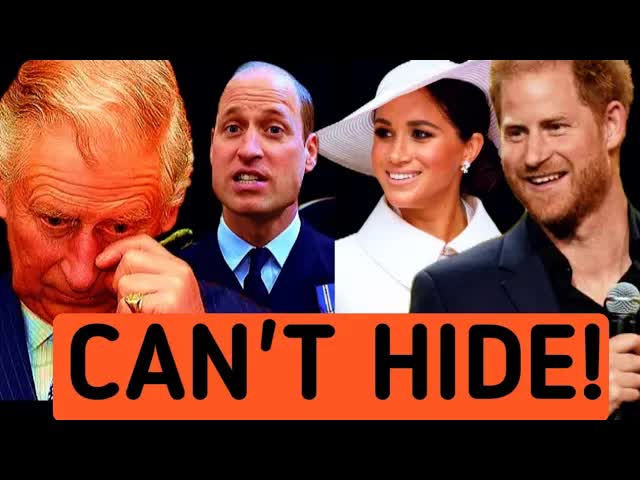In a world captivated by the glamour of royalty, Meghan Markle stands out as a figure of resilience and change.
Before she became the Duchess of Sussex, Meghan was just another ambitious woman from Los Angeles, chasing her dreams in acting and humanitarian efforts.
Her talent shone brightly, particularly in her role as Rachel Zane on the popular TV series “Suits.”
However, it was her romance with Prince Harry that catapulted her into the spotlight, leading to a fairy-tale wedding in May 2018 that would make history.
This union was not merely a storybook ending; it was a groundbreaking moment that challenged centuries of tradition.
Meghan, a biracial American woman who had previously been divorced, entered the British royal family—a domain typically dominated by white aristocrats.
With her marriage to Prince Harry, she became a symbol of hope for many who yearned for a more inclusive future within an institution steeped in protocol.
Yet, this change was met with resistance.
Meghan’s entry into royal life unveiled a torrent of criticism that often veered into the realms of racism and misogyny.
As the first woman of color in the British royal family, her presence stirred deep-seated prejudices, revealing societal discomfort with diversity in positions of power.
The backlash against her was not just personal; it highlighted broader issues of race and gender that continue to plague our society.
The media frenzy surrounding Meghan was particularly telling.
While Kate Middleton, her sister-in-law, received accolades for her maternal gestures, Meghan faced derision for similar actions.
This glaring disparity in treatment underscored the racial bias embedded within media narratives.
Instead of being celebrated, Meghan was often portrayed as “difficult” or “demanding,” a stark contrast to the praise heaped upon her white counterparts.
Social media added another layer to this toxic environment.
As Meghan’s visibility increased, so did the hateful rhetoric directed at her.
The Duchess became a target for not only her choices but also her identity.
The vitriol she faced was not an isolated phenomenon; it was part of a disturbing pattern of racial discrimination that reflects the larger societal issues we grapple with today.
This relentless barrage of negativity exposed the uncomfortable truths about our collective attitudes towards diversity.
Meghan’s experience serves as a reminder that racism and misogyny are not relics of the past; they are very much alive, manifesting in both overt and subtle ways.
The disdain aimed at Meghan is a reflection of our struggles with accepting change and embracing progress.
Why does Meghan’s presence provoke such intense backlash?
It boils down to the discomfort that many feel when confronted with the idea of a more inclusive society.
Her journey disrupts the status quo, challenging long-held beliefs and traditions.
This discomfort often translates into hostility, as some individuals resist the notion of diversity in influential roles.
The harsh reality is that the hatred directed at Meghan Markle is a symptom of a larger societal ailment—one that we must confront head-on.
It forces us to examine our own biases and prejudices, urging us to reflect on how we treat those who dare to break barriers.
The response to Meghan’s rise is a mirror reflecting the cracks in our societal fabric, revealing the work that still lies ahead.
Addressing these issues requires collective action.
It’s not enough to acknowledge the problem; we must actively challenge it.
Racism is not solely a burden for its victims; it’s a societal issue that demands our attention and effort.
We need to foster a culture of acceptance, where differences are celebrated rather than used as a basis for discrimination.
Moreover, it’s essential to amplify marginalized voices and learn from their experiences.
By standing against injustice and calling out discrimination when we see it, we can begin to dismantle the structures that perpetuate inequality.
Silence in the face of prejudice only serves to empower those who propagate hate.
As we navigate through these complex issues, Meghan Markle’s story stands as a beacon of resilience.
Her grace under fire inspires us to strive for a world where respect and dignity are afforded to all, regardless of race or gender.
The journey toward equality is ongoing, and it is one that requires active participation from each of us.
The backlash against Meghan Markle is not just her battle; it’s ours as a society.
It’s a call to action, urging us to confront our discomfort with change and to work towards a future where everyone is valued for who they are.
Only then can we hope to build a society free from the chains of prejudice and discrimination.
